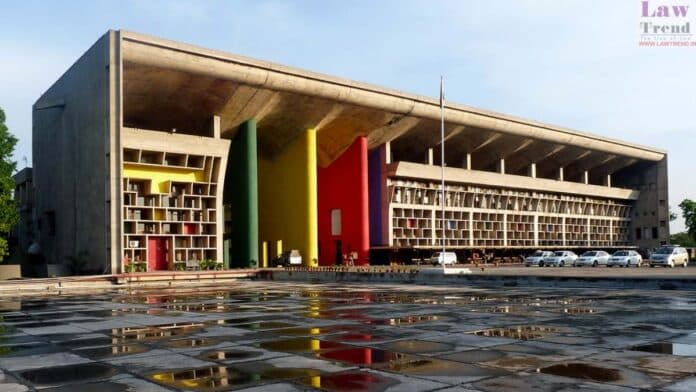As thousands of farmers camped at the Punjab-Haryana border planning to resume their protest march to Delhi, the Punjab and Haryana High Court on Tuesday orally asked the Punjab government not to allow them to gather in large numbers.
The court observed that tractor-trolleys cannot be run on highways according to the Motor Vehicles Act and said the farmers can go to Delhi by bus or using public transport.
The protesting farmers have been camping at the Shambhu and Khanauri points on Punjab’s border with Haryana after their ‘Delhi Chalo’ march to press the Centre to accept their demands, including a legal guarantee for minimum support price for crops, was halted by multiple layers of barricades, concrete blocks and a huge deployment of security personnel.
A bench of Acting Chief Justice GS Sandhawalia and Justice Lapita Banerji orally asked the Punjab government to ensure that farmers do not gather in large numbers.
Haryana Additional Advocate General Deepak Sabharwal said the court observed that farmers cannot use tractors and trolleys on highways according to the Motor Vehicles Act.
The court orally observed that they may go to Delhi by bus or using public transport, he said.
The state of Punjab was orally asked to not allow farmers to collect in large numbers and they are scattered, Sabharwal informed.
The bench also asked the central government to file a status report by way of an affidavit to provide details about the results of the meetings between farmer leaders and a panel of Union ministers.
The high court was hearing two petitions.
One petition has sought directions to stay all “obstructive” actions by the governments of Haryana and Punjab and the Centre against the farmers’ protest while the other has sought directions to ensure no highway is blocked by the protesters and action is taken against them for blocking roads.
The hearing has been adjourned for next week.
Also Read
During the last hearing on February 15, Haryana had submitted that farmers’ unions are “hell bent” on stopping the lifeline of northern states and their movement has instilled a “sense of fear” among citizens of the state.
A day after their fourth round of talks with three Union ministers on Sunday, farmer leaders rejected the Centre’s proposal for procuring pulses, maize and cotton crops at the minimum support price (MSP) by government agencies for five years. They said it was not in favour of farmers.
The Samyukta Kisan Morcha (Non-Political) and the Kisan Mazdoor Morcha are spearheading the ‘Delhi Chalo’ march, which began on February 13.
Besides a legal guarantee of MSP, the farmers are demanding the implementation of the Swaminathan Commission’s recommendations, pension for farmers and farm labourers, farm debt waiver, no hike in electricity tariff, withdrawal of police cases and “justice” for the victims of the 2021 Lakhimpur Kheri violence, reinstatement of the Land Acquisition Act, 2013, and compensation to the families of the farmers who died during a previous agitation in 2020-21.




